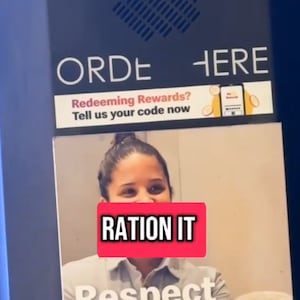The Ottawa Citizen recently asked readers: “What’s the one issue that needs immediate attention from Canada’s next leader?” Hundreds responded, and we drew up what we’re calling the Citizen’s Agenda: five questions for Ottawa-area candidates in the April 28 federal election. Below are responses from candidates for three of the four major parties in the riding of Ottawa West-Nepean: Josh Bizjak of the NDP Prakasha Dhakal of the Green Party of Canada Anita Vandenbeld of the Liberal Party of Canada Ryan Telford of the Conservative Party of Canada declined an interview. All interviews have been edited and condensed for clarity.
Josh Bizjak, NDP candidate How do you plan to improve Canada’s economic competitiveness? Given what is going on in the United States, it’s very clear that we need to strengthen our international trading partners. But we also have to find new places that want our goods and resources. Sadly in Canada, after years, I guess you could say, of neglect, we need major investments into our infrastructure.

We need to be able to get our goods to our training partners. We have opportunities to build new ports so that we can get our goods to where they need to go. Our rail system has been woefully inadequate for years.
I’ve listened to people in the forestry industry and in the farming industry tell me a bout how products go rotten because they can’t get the track time that’s needed to get their products to market quick enough. So there is major infrastructure stuff that needs to be done. While doing so, we also need to make sure that those infrastructure projects are anchored in good jobs.
We need skilled tradespeople who are unionized (and certified) with the red seal to ensure that the utmost safety is taken, and that we can have apprentices working on those projects. We also need to be respecting the environment as we do that and respecting Indigenous people. What is one locally focused campaign pledge that you would implement as MP? Our member of Parliament needs to be reliable, a strong counterpart to our other elected officials in the riding and to our community associations.
They need someone whose office is open, whose staff answer the phone, who reply to emails, who come out and work collaboratively to get big projects done for the community. A great example of that would be our local transit. There is a lot of money on the table that the federal government has promised the City of Ottawa.
It’s about time that that funding be released. I also believe strongly that our city has been overburdened by our transit system, and this is something that the federal government could upload, especially when it comes to the operating costs of transit. This is the capital city.
This is supposed to be the shining gem, and yet we have a municipal government that is burdened by finances and by its budget. I believe the City of Ottawa should be helped out and that transit would be an easy way for the federal government to step in and assist. It would make a huge difference in our community.
What are your thoughts on the current size of the federal public service? We would absolutely not cut the public service. Our public servants dedicate their lives, their careers to being there for all of us. They deserve the utmost respect.
They deserve to feel confident that they will have a job, that the years of service they’ve put in won’t be undermined simply by a government that comes in and wants to make budget cuts. If anything, our public service can be strengthened. How do you propose helping to fix the housing crisis in Ottawa? I’ll start by saying that the situation we’re in is terrible and that people are suffering.
We’re putting first-time homeowners into a situation where they’re not just getting a mortgage but they’re mortgaging off their financial futures to be able to get in the market. This is not a crisis that has just happened upon us. This has been a train wreck in slow motion, and now we’re at the tipping point.
I talked to a woman who just recently came to Canada; she and her husband are refugees. T hey’re paying $1,900 a month for a one-bedroom for themselves and their three children, and the apartment is infested with bedbugs and cockroaches. We have a predatory rental system out there.
That said, there’s a simple solution. The federal government’s sitting on a lot of land here in our riding. That land can be made readily available immediately for development of affordable housing.
There’s opportunity for mixed-use development. W e’re short on doctors’ clinics, we’re short seniors’ care, we’re short on long-term care. When we’re building new affordable homes and we’re looking at new communities, we can have mixed-use added into that.
It can all be done at the same time and the federal government can step up to do it. What is your favourite season in Ottawa and why? I have to say it’s spring, and I’ve got a lot of reasons why. After a dark, cold and snowy winter in Ottawa, when the days become longer and the sun starts to shine, there’s certainly some energy in your step.
You smell it in the air, you see the buds coming out of the trees, the flowers coming. I’m a big snowboarder, too. I’ve been snowboarding my whole life.
And I have to say, getting out to Camp Fortune or Edelweiss or any of the local ski hills, there’s nothing better than snowboarding or skiing downhill in spring weather. You can take a layer off. Get out with your friends on a patio and then go for a couple of runs and you don’t have to worry about icy conditions.
I think spring is a fantastic time of year here in Ottawa. Prashanta Dhakal, Green candidate How do you plan to improve Canada’s economic competitiveness? The issue of societal stability is one that nobody’s talking about and I feel like it’s a very important topic. S ustain able development is possible and we can do long-term thinking and long-term planning in the context of a stable society where we’re not just constantly fighting fires.
We have to be able to build local supply chains. We need to build an engine entirely in Canada without having the parts going back and forth across the border. We do have high-tech know-how in this country.
We have good quality education in the country, but we’ve lost a lot of our best and brightest to the U.S., unfortunately.
So we need to stop the brain drain. We also need to ease the flow of goods and services across borders. We need to be self-sufficient in a lot of important things like food, medicine and energy so that we cannot be bullied by foreign powers.
What is one locally focused campaign pledge that you would implement as MP? Affordability is an extremely important issue not just for people in Ottawa but all across the country. I think it is absolutely the most important issue at the moment, and housing cost is an important variable. Housing is a lot of people’s biggest expense.
When housing is expensive, people end up in poverty. You cannot afford food, you cannot afford to make it through hard times, and so on. If you want a bigger middle class, one easy way to do that is to make housing affordable and make sure that wealthy landlords are not just sitting on their butts in the Bahamas and collecting rent.
Because that’s not only making the average Canadian poor, it’s also taking money out of the system, w hich lowers our economic competitiveness. And so lowering housing costs is actually good for our competitiveness (and) it’s good for our economy. We do have issues with not being able to build homes quickly enough.
We have regulatory hurdles and we have policies that make a lot of mom-and-pop landlords not want to be landlords. That’s part of the problem, but a bigger part of the problem was that our population growth grew too quickly. And it was completely in our hands because that population growth came from immigration.
Immigration is good. I’m a first-generation immigrant myself, but it has to be controlled. It has to be at a sustainable level.
What are your thoughts on the current size of the federal public service? I’ll be honest with you. I haven’t done enough research on this area and it’s difficult to give an honest answer without really looking at what’s there and whether or not it is necessary. I f I was in a position of power, I would certainly make it a priority to do that research because what happens is, even though agencies might not be bloated, what can happen is that as technology improves, we’re able to do more with less resources.
And as our ability to do more with fewer resources comes up, we have to be able to take advantage of that and we have to be able to implement that in all levels of government because to not do so is to not improve productivity. Improving productivity is absolutely important if we want our living standards to remain high. So there may be opportunities to streamline and make some agencies more efficient.
How do you propose helping to fix the housing crisis in Ottawa? A ny party that does not acknowledge that uncontrolled immigration was part of the housing crisis is not being honest with themselves, I think. But, despite the shortage of housing, we’re not able to build more houses quickly enough. Why is that? It’s a difficult problem because you need a lot more construction workers, and construction workers don’t just fall out of the sky.
We also need a much larger supply chain. Another part of the reason is that we have regulations that make development very expensive, and we allow developers to make a lot of decisions at the municipal levels. Developers want to sell big homes on the outskirts.
One big home might cost $500,000 to build but it can only be one time. We could build a highrise that can support 100 families and we would be better allocating our resources in that regard. We also have to be streamlining our regulations and reducing our population growth.
What is your favourite season in Ottawa and why? I might be an oddball here because I actually like winter. And I like winter because skiing is my favourite activity. Downhill because it’s less work for me.
Gravity does the work. I enjoy the thrill of just going fast downhill. In fact, whenever friends ask me if they could visit Ottawa, I encourage them to visit us in the winter because I can show them a lot of things that are totally different from what they might be used to in, say, Boston, for example.
In the winter, we can go skating at the Canal, we can go skiing, and they’re so accessible, so close to the city. I know you’re not going to be able to see ice sculptures anywhere in Texas. Anita Vandenbeld, Liberal candidate How do you plan to improve Canada’s economic competitiveness? Well, obviously, the first thing with the economy is the threat of Trump’s unjustified tariffs.
I think (the fact) that we’ve got Mark Carney, who, in my view, is a world-renowned economist who knows how to talk to world leaders, puts us in the best position to make sure we go up against Trump. For our local economy, I think that we need to make sure that we’re protecting good jobs. It’s not just about having jobs but having good jobs.
So for instance, Algonquin College has the new DARE (Discovery, Applied Research, and Entrepreneurship) district, which does entrepreneurship, innovation and works with industry to really prepare students for jobs of the future. We need to have on-ramps to the public service for young people and make sure that we’re protecting those good public service jobs, which are really careers. We also have to make sure that the economy works for everybody.
A lot of the measures that we put in the last few years are things like dental care, which has helped a lot of seniors, and the child benefit, which raised 400,000 children out of poverty. We know that when you have programs like child care, it’s not just a program that helps families, but it’s also an economic policy because it increases our GDP. It brings with it the highest workforce participation of women.
I think that what we need to do for the economy is to deal with Trump’s tariffs right now. We need to get rid of interprovincial trade barriers. We need to change supply chains.
We need to further diversify our trade with other parts of the world. And then on top of that, we need to have those programs that make sure that everybody benefits. What is one locally focused campaign pledge that you would implement as MP? One of the things that I’ve been very focused on is housing.
We’ve been pretty successful in Ottawa and Nepean getting affordable seniors housing at the Carlington Community Health Centre, to get families affordable housing at Michelle Heights and also a new women’s shelter for transitional housing. But we have a lot of rental units that have gone up significantly in price. So we need to encourage the building of more so that we have competition so that people can actually afford to have a place to live.
One of the more specific pledges is the federal government last election promised that we would make public lands available. So these are National Capital Commission or Public Services and Procurement Canada lands that are not used, that are not ecologically sensitive, that are in key locations near bus routes and major arteries and that we would identify some of these and make them available for housing. The one in particular that I’m making a commitment to (involves) two parcels of land just across from the Queensway Carleton Hospital.
It’s on Baseline Road. What I’ll commit to is to be working with the hospital, with local municipal councillors, and the provincial MPP, to try to ensure that we can get that land so that the hospital and other partners can develop, first of all, transitional housing for people who are in the hospital that don’t need to be but have nowhere to go. Also we want to have long-term, supportive care for seniors in that space, which is right across from the hospital.
It’s also for our frontline workers because we have people who work at that hospital who can’t afford to live in the area around it. We want to create the kind of housing for health workers they can actually afford, and where they can walk to the hospital. What are your thoughts on the current size of the federal public service? Well, obviously during COVID, we did have to increase the public service because we needed to provide those services to Canadians urgently.
I will always fight to make sure that there are no cuts to the federal public service. What we have done is we’ve asked every department to find 1% per year, which is legitimate. We need to find where there are areas that don’t necessarily need spending.
For instance, a lot of things can be done on Zoom now that might have required in-person travel. I believe very strongly is that we can’t (cut) anything across the board because some units will end up underserved and others not. And we need to always continue having on-ramps for young people to be able to join the public service.
So I would fight any kind of hiring freeze. We need to respect public servants. We need to respect their rights to collective bargaining.
We need to make sure that they have the things that they need, including in retirement. How do you propose helping to fix the housing crisis in Ottawa? Well, first of all, we have a deal with the city of Ottawa so that in exchange for some changes (that will) cut red tape, we’ve given them $176 million for housing. That’s just one of the things that we’ve done.
We’ve also got the $72-billion dollar national housing strategy of which quite a bit of that went into the National Capital (Region). We also have the Canada-Ontario housing benefit, which provides a rent supplement for people who might be at risk of losing their housing and Reaching Home (Canada’s Homelessness Strategy), which deals with encampments and homelessness. You need to deal with housing at every level.
In our area, of course, we have a lot of rental, but we also have bungalows that are getting really expensive. So making sure that we have put in programs to make housing more affordable for people who do want to purchase homes. One of the real concerns is that people are spending their whole paycheque just to get rental housing.
That’s where (we want to be) building more rental housing, making sure that we cut the GST and the development costs so that we can get more affordable housing (and) create more competition. And then of course, there are the people who desperately need to have affordable housing. We’re lacking supportive housing for people with disabilities, supportive housing for people who may be difficult to house long-term because of mental health crises or addictions, where they have those services.
There’s also a gap right now for seniors who need nursing care and can’t afford it. One solution we have is the Carlington Community Health Centre. We were able to build affordable seniors’ housing in an environmental building, which I think costs $27 a month to heat, right above the health centre.
I’ve brought a number of ministers there to see if we can make this a model across the country. What is your favorite season in Ottawa and why? I know it comes right before winter but I love fall. I have always loved it.
I love the leaves. I love the colours, the smell, walking and hearing the crunching of the leaves. If you’re walking at Britannia Park and looking at the river and seeing the bright colours of the Gatineau Hills across the river and feeling the crunching under your feet.
There’s just something about the fall. It’s absolutely beautiful and it’s not that oppressive heat of summer and it’s not cold and snowy either. And no bugs.
That is a real advantage. RelatedFederal election 2025: Everything you need to know about voting in Ottawa West—NepeanHow to vote in the 2025 federal election in Ottawa.
Health

Where Ottawa West-Nepean candidates stand on housing, public service, crime and more

Liberal, NDP and Green candidates answer your top election questions.















